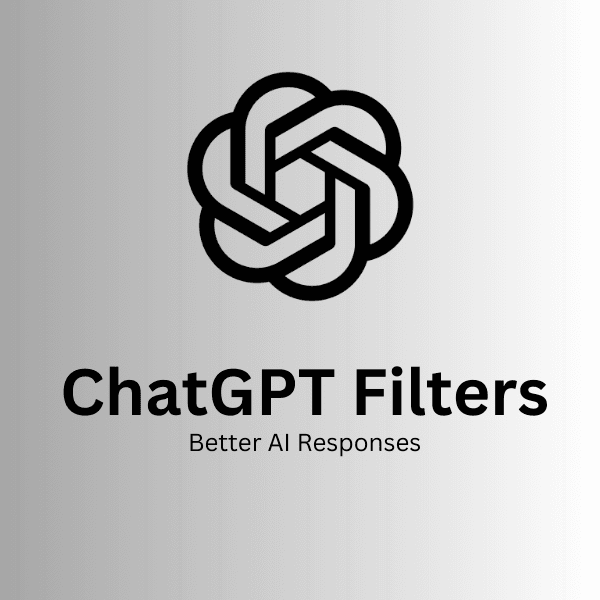Artificial intelligence tools like ChatGPT have revolutionized how we interact with technology. However, many users encounter content moderation filters that limit the AI’s responses. These filters are in place to ensure responsible use, but they can sometimes feel restrictive. In this blog, we’ll explore how to bypass ChatGPT filters ethically and effectively, ensuring you get the best possible responses without violating terms of use.
What Are ChatGPT Filters and Why Do They Exist?
ChatGPT filters are designed to prevent the AI from generating harmful, illegal, or unethical content. They ensure compliance with OpenAI’s guidelines and protect users from inappropriate outputs. While these filters serve an essential purpose, understanding how they work can help you craft better prompts and maximize ChatGPT’s potential.
Tips for Navigating ChatGPT Restrictions
1. Use Clear and Specific Prompts
One common reason ChatGPT filters trigger is vague or ambiguous prompts. When you ask specific questions, the AI is more likely to understand your intent and provide an accurate response.
- Example: Instead of asking, “Tell me about restricted topics,” try, “Can you explain why some topics are restricted in AI content generation?”
2. Rephrase Your Query
If you hit a restriction, don’t give up. Rephrasing your query can often help you achieve the desired output.
- Example: If “How do I hack something?” is blocked, you might rephrase it to, “What are the ethical concerns associated with hacking?”
3. Provide Context
Adding detailed context to your query can guide ChatGPT to focus on the relevant aspects of your question, reducing the chances of triggering filters.
Example: Instead of saying, “Write a story about war,” say, “Write a fictional story about how a soldier finds peace after returning home from war.”
Tricks to Get Better Responses Without Breaking Rules
4. Break Down Complex Questions
ChatGPT sometimes struggles with multi-layered queries. Simplify your prompts by breaking them into smaller parts.
- Example: Instead of asking, “What are the economic, social, and environmental impacts of climate change?”, ask about each impact individually.
5. Use Hypothetical Scenarios
When discussing sensitive topics, framing your question as a hypothetical scenario can help ChatGPT navigate filters.
Example: Instead of “How do you deal with illegal activities?” ask, “If a character in a novel is involved in illegal activities, how should their story arc progress?”
Ethical Considerations When Navigating Filters
While it’s possible to navigate around ChatGPT filters, it’s essential to do so ethically. Misusing AI tools can have serious consequences, including account suspension or contributing to harmful behavior. Always:
- Respect OpenAI’s usage policies.
- Avoid prompts that could harm others or promote illegal activities.
- Use the tool responsibly to enhance productivity and creativity.
Common Challenges and How to Overcome Them
6. Overcoming Repeated Rejections
If your prompts keep getting blocked, try approaching the topic from a different angle. Use neutral language and avoid emotionally charged terms.
7. Leveraging AI’s Strengths
Focus on ChatGPT’s capabilities in areas like brainstorming, content creation, and learning assistance. This reduces the chances of encountering restricted outputs.
FAQs
Why does ChatGPT have filters?
ChatGPT filters exist to ensure the AI generates content responsibly, avoiding harmful, illegal, or unethical responses. These filters protect users and maintain compliance with ethical guidelines.
Can I completely disable ChatGPT filters?
No, you cannot disable ChatGPT filters. They are an integral part of OpenAI’s system to ensure responsible use and protect against misuse.
What should I do if my prompt is repeatedly rejected?
If your prompt is blocked, try rephrasing it, adding context, or breaking it into smaller parts. Always ensure your query complies with ethical guidelines.
Are there ethical limits to bypassing ChatGPT filters?
Yes, bypassing ChatGPT filters unethically can lead to misuse and potentially violate OpenAI’s terms of service. Always use AI tools responsibly and ethically.
How can I improve ChatGPT’s responses?
You can improve responses by using clear, specific, and context-rich prompts. Breaking down complex queries and framing them as hypothetical scenarios can also help.
Conclusion
Learning how to get around ChatGPT filters doesn’t mean breaking the rules; it means understanding the tool’s capabilities and limitations. By using clear prompts, rephrasing queries, and respecting ethical boundaries, you can unlock the full potential of ChatGPT while staying compliant with guidelines.




